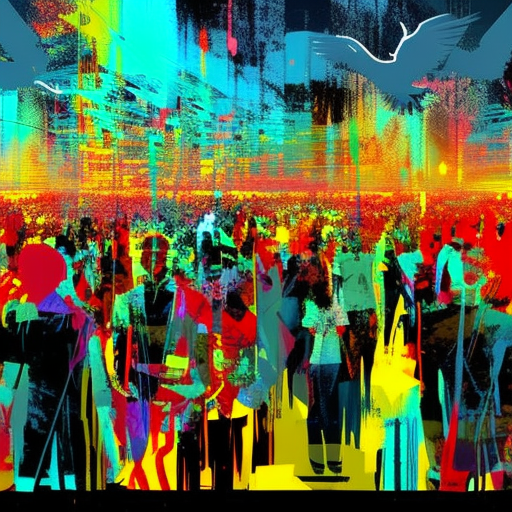The Madness of Crowds: Summary
In “The Madness of Crowds,” author Douglas Murray explores the current cultural and political landscape, examining the rise of identity politics and the impact it has on society. Murray argues that the pursuit of equality has morphed into a dangerous ideology that stifles free speech and promotes division. Through a series of case studies, he highlights how this ideology has infiltrated various aspects of society, including race, gender, and sexuality. Ultimately, Murray calls for a return to reason and individualism, urging readers to resist the madness of crowds and embrace a more nuanced and inclusive approach to social issues.
The Rise of Identity Politics
Murray begins by examining the rise of identity politics and its impact on society. He argues that the pursuit of equality has been replaced by a dangerous ideology that seeks to divide people into groups based on their race, gender, and sexuality. This ideology, according to Murray, stifles free speech and promotes a victimhood mentality, where individuals are encouraged to see themselves as oppressed or oppressors based on their identity. He highlights how this ideology has infiltrated various institutions, including universities, media, and politics, leading to a culture of fear and self-censorship.
The Impact on Race, Gender, and Sexuality
Murray delves into the specific ways in which identity politics has impacted discussions around race, gender, and sexuality. He argues that the focus on group identity has led to a narrowing of perspectives and a reluctance to engage in open and honest dialogue. Murray explores how this ideology has affected issues such as cultural appropriation, transgender rights, and the #MeToo movement. He raises important questions about the consequences of prioritizing group identity over individual rights and the potential dangers of silencing dissenting voices.
A Call for Reason and Individualism
In the final section of the book, Murray calls for a return to reason and individualism. He argues that the current climate of identity politics is not only detrimental to society but also undermines the principles of liberal democracy. Murray emphasizes the importance of free speech and open debate, highlighting the need for intellectual diversity and the ability to challenge prevailing narratives. He encourages readers to resist the pressure to conform to groupthink and instead embrace a more nuanced and inclusive approach to social issues.
Key Takeaways:
- Identity politics has replaced the pursuit of equality, leading to division and a stifling of free speech.
- The focus on group identity has resulted in a narrowing of perspectives and a reluctance to engage in open and honest dialogue.
- Resisting the madness of crowds requires a return to reason, individualism, and a commitment to free speech and intellectual diversity.
“We will not survive the madness of crowds if we do not regain our ability to think for ourselves.”
In “The Madness of Crowds,” Douglas Murray provides a thought-provoking analysis of the current cultural and political landscape. He raises important questions about the impact of identity politics on society and calls for a return to reason and individualism. By highlighting the dangers of groupthink and the importance of free speech, Murray challenges readers to resist the madness of crowds and embrace a more nuanced and inclusive approach to social issues.












